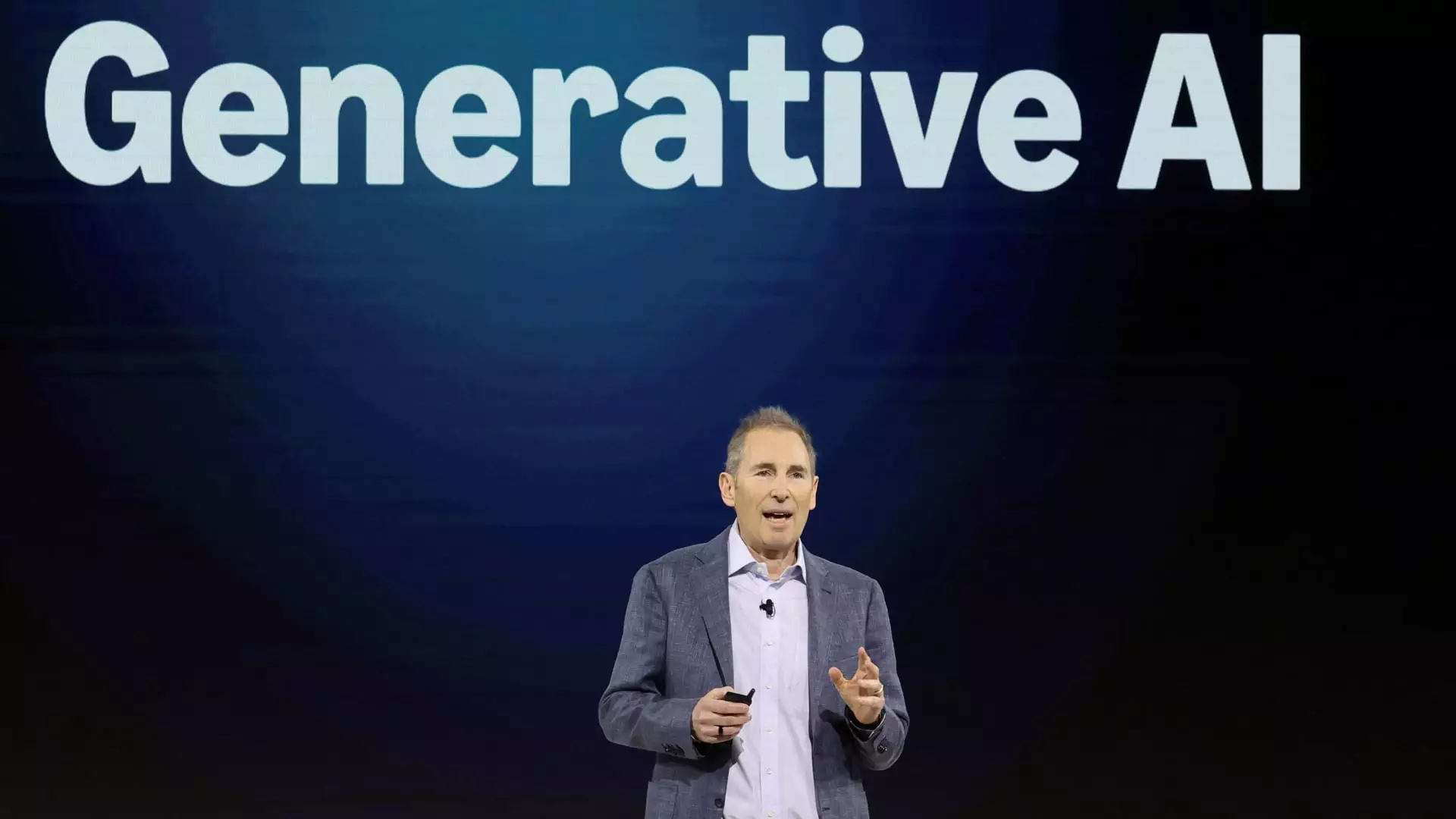In a bold move that exemplifies Amazon’s relentless penchant for innovation, the tech giant has initiated trials of its latest generative artificial intelligence offerings, targeting both shopping and health care. These advancements signal not just an evolution of the shopping experience, but also the potential for AI to offer meaningful engagement with consumers. This shift is pivotal, as it hints at a future where consumers are likely to engage with products through conversational jargon rather than traditional keywords. The shopping assistant, dubbed Interests AI, is uniquely different from conventional search functionalities that have dominated the e-commerce landscape. By allowing shoppers to express their desires in a more relatable manner—think “gifts for gardening enthusiasts” or “eco-friendly kitchen gadgets”—Amazon is positioning itself as a more accessible and user-centric platform.
The beauty of this feature lies in its potential to break down barriers for users who may feel overwhelmed by the traditional search paradigms. While other platforms often force users to fit their queries into rigid categorizations, Amazon’s Interests AI invites a broader, more diverse interaction that could very well enhance user satisfaction. This step toward a more conversational interface isn’t just about aesthetics; it taps into deeper user desires, likely leading to higher conversion rates. However, one must question whether this engagement reflects genuine understanding or merely a clever marketing tactic to keep up with the fast-paced tech landscape.
Healthcare Meets E-Commerce: A Double-Edged Sword
Amazon’s exploration into the healthcare sector through its Health AI chatbot has raised eyebrows. While the convenience of getting health advice while browsing for products may seem groundbreaking, it presents an ethical tightrope. Who defines ‘health advice,’ and how can we trust that a system built on algorithms—and not human practitioners—will offer sound guidance? Although Amazon has stated that the service won’t provide personalized medical advice and has incorporated a “clinically verified” badge for certain responses, the inherent risks remain.
A platform like Amazon wielding this kind of influence over health conversations is both powerful and alarming. For one, it may lead to a misconception of AI as a substitute for professional medical advice—an unhealthy precedent in a world where misinformation is already rampant. Moreover, as users flock to this seamless connection of shopping and healthcare, Amazon potentially gains an invaluable repository of data that could be monetized in ways that many consumers might not anticipate. Although intended to supplement traditional healthcare, this development raises serious questions about how much “healthcare” we should be allowing corporations to influence.
Corporate Strategy or Genuine Service Enhancement?
Andy Jassy, Amazon’s CEO, has boasted of the development of roughly 1,000 generative AI applications, showcasing a staggering level of corporate ambition. Yet, beneath this shiny surface of innovation lies a pressing need to scrutinize the motivations driving such developments. Are these initiatives about genuinely enhancing user experience, or are they more a reflection of Amazon’s weighty stature in the e-commerce realm, seeking to preemptively neutralize competition? The implications of such extensive AI deployment appear multifaceted: yes, they diminish friction within the shopping experience, but they also serve Amazon’s broader strategic interests.
As Alexa, Amazon’s digital assistant, prepares for an upgrade with the anticipated rollout of Alexa+, one can’t help but ponder the ethical ramifications of such a concentration of technology in everyday life. Would consumers appreciate an “agent” that might anticipate their wants, or could this be seen as an intrusive surveillance tactic?
Consumer Trust: The Ultimate Currency
While AI-driven features could potentially position Amazon ahead of its competitors like OpenAI’s ChatGPT, there’s a more pressing question at hand: How much trust are consumers willing to bestow upon a corporation like Amazon? As generative AI becomes an intrinsic part of the shopping ecosystem, user trust will be the crucial currency that will determine success. Will consumers view Amazon’s innovative features as tools that genuinely aim to understand and meet their needs, or as mere conveniences designed to extract more of their time and data?
In a societal landscape that increasingly prioritizes ethical considerations, the onus lies on Amazon—not just to advertise new features but to cultivate a responsible framework around them. As these AI innovations permeate our shopping habits and daily lives, the need for transparent policies surrounding safety, privacy, and ethical AI usage has never been more paramount. The world will be watching closely as Amazon navigates this intricate and delicate landscape of AI in commerce and beyond.


Leave a Reply